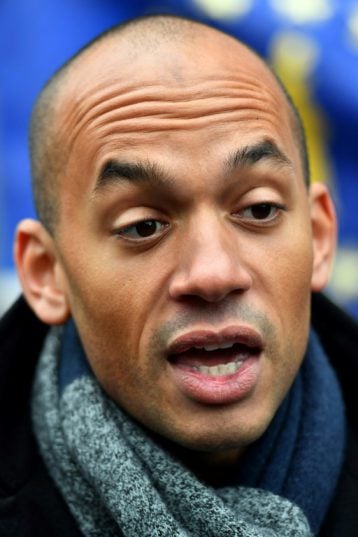Nabi hits out at Chiefs striking woes after City draw
May’s decision to expel 23 diplomats and suspend high-level contacts with Russia over the nerve agent attack on former double agent Sergei Skripal received cross-party and media support, heralding a ceasefire in the bitter row over Brexit.
“The prime minister makes a compelling case for Kremlin culpability in the Salisbury incident and is right that such a reckless, hostile act by another state requires a robust response,” the centre-left Guardian, normally a critic, said in its editorial.
May has recently faced rebellions from pro-EU MPs within her Conservative Party, delivering her a damaging parliamentary defeat over her Brexit strategy.
But leading rebel Anna Soubry praised May’s announcement on Wednesday in the House of Commons, saying “the length of breadth of this place has completely supported not just the wise words and the leadership of the prime minister but also her firm actions.”
“The response has been prudent, some have found it underwhelming but it is important to keep room for escalation as more evidence comes in,” Kadri Liik, a senior policy fellow at European foreign policy think-tank ECFR, told AFP.
May’s respite is in sharp contrast to opposition Labour leader Jeremy Corbyn, whose response to the crisis appears to have shattered the truce reached with centrist MPs following his better-than-expected performance in last year’s general election.
The veteran leftist, recently accused by a Conservative lawmaker — who later retracted the claim — of passing secrets to a Czechoslovak agents he met in the 1980s, refused to blame the Kremlin outright, asking May if she had provided samples of the suspected poison to Moscow for analysis.
Labour MP Ben Bradshaw led the thinly-veiled criticism, telling parliament that “most of us on these benches fully support the measures she has announced.”
Colleague Yvette Cooper demanded “unequivocal” condemnation while former Labour minister Pat McFadden said defending Britain when threatened was an “essential component of political leadership”.
About 20 Labour backbenchers signed a motion stating the Commons “unequivocally accepts the Russian state’s culpability”.
– ‘Anti-Corbyn agenda’ –
In the media, the Daily Telegraph denounced Corbyn’s “craven posturing” while the Guardian called his response “dispiriting.”
“He sounded too keen to find another explanation,” said its editorial.
“He hasn’t got the tone right,” added Liik.
“Of course they need evidence, but that doesn’t mean you should diminish the gravity of the crimes, because what happened was outrageous.”

Centrist Labour MP Chuka Umunna hit out at Corbyn spokesman Seumas Milne for doubting the findings of Britain’s intelligence services
Irate MPs targeted Corbyn spokesman and strategist Seumas Milne after he later doubted the findings of Britain’s intelligence services.
“There is a history between weapons of mass destruction and intelligence which is problematic, to put it mildly,” he told reporters, in reference to the Iraq War.
Milne’s appointment in 2015 raised eyebrows given previous opinion articles he had written in the Guardian, in which he said “Putin has now become a cartoon villain and Russia the target of almost uniformly belligerent propaganda across the western media.”
Centrist Labour MP Chuka Umunna tweeted that “Milne’s comments do not represent the views of the majority of our voters, members or MPs.”
However, polls have yet to be released showing whether criticism within Westminster has translated to the electorate, with much of Corbyn’s success based on defying the establishment and opposing the Iraq War.
Long-time ally and shadow interior minister Diane Abbott tapped into these sentiments when defending her boss.
“If we are to persuade any other nation to take significant measures alongside us, they may ask for a higher burden of proof,” she said.
“The same outlets now condemning the Labour leader recently tried to label him as a Czech spy. They have an anti-Corbyn agenda.”
Download our app